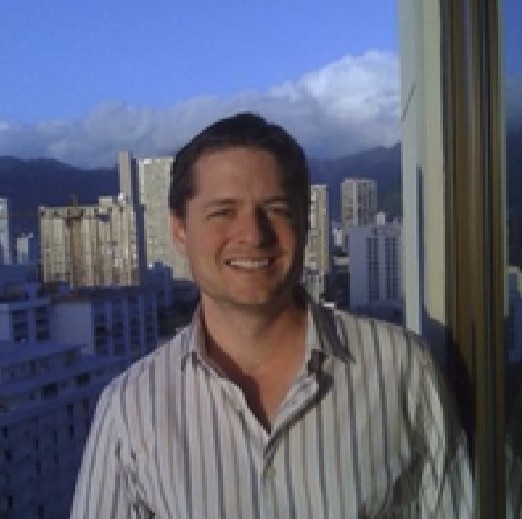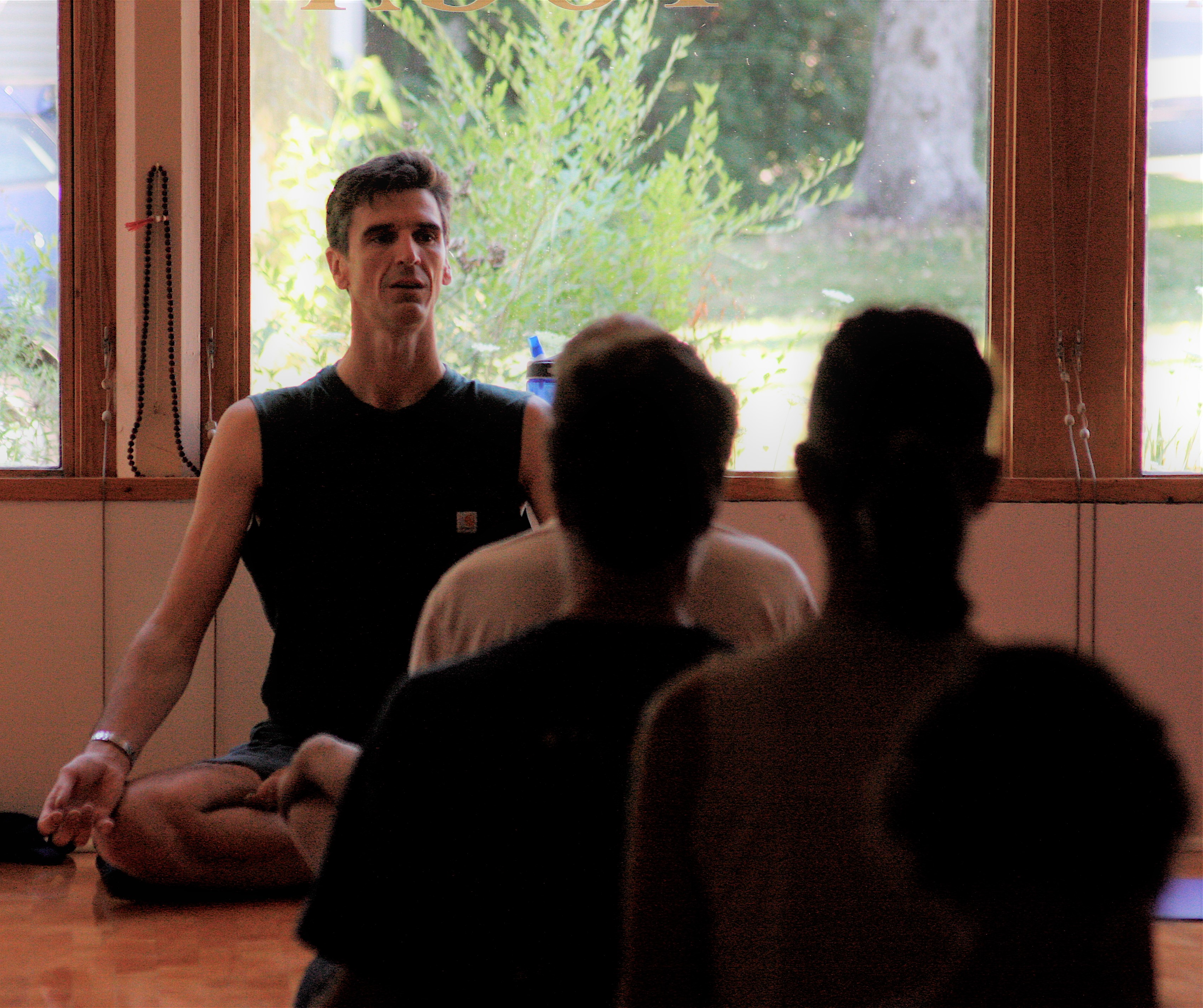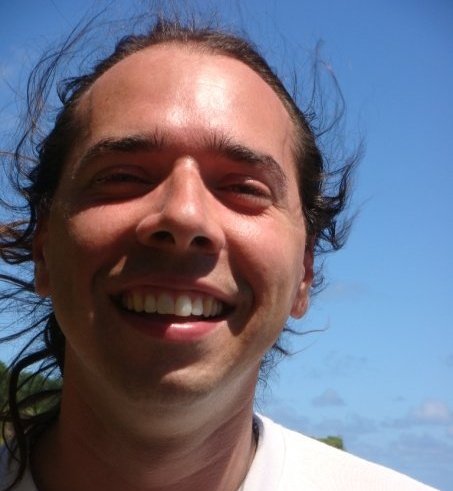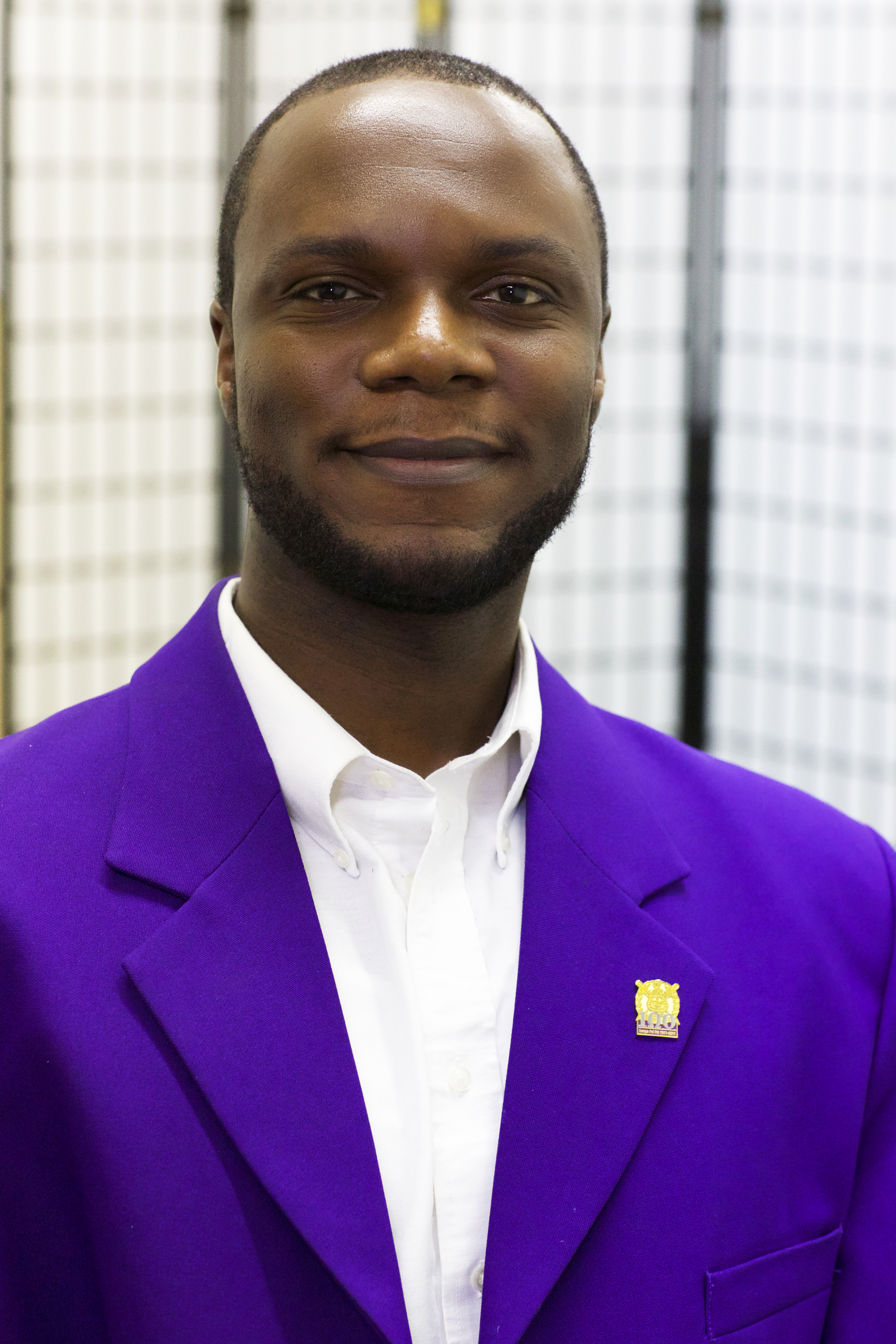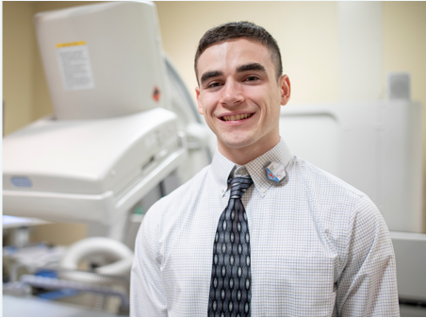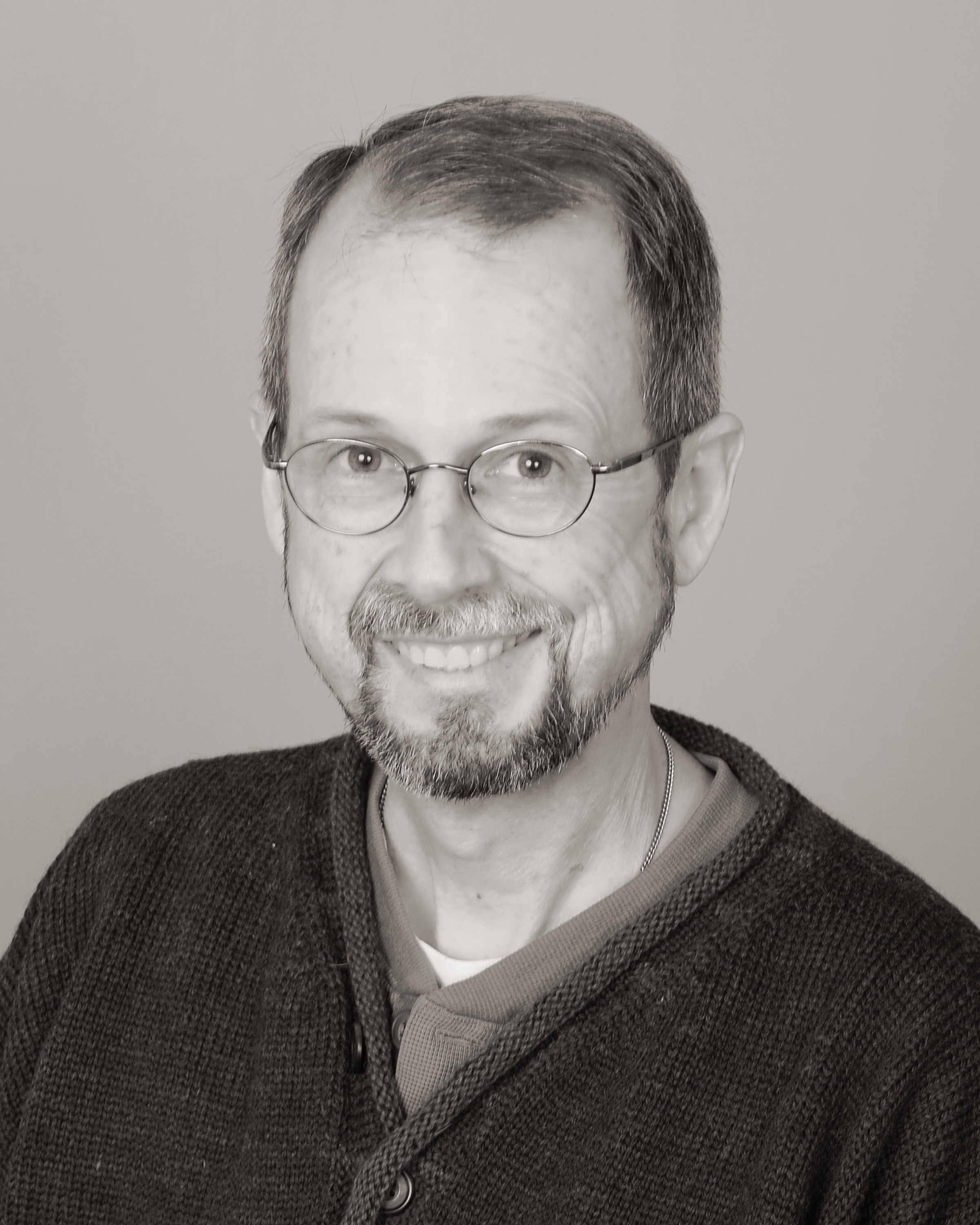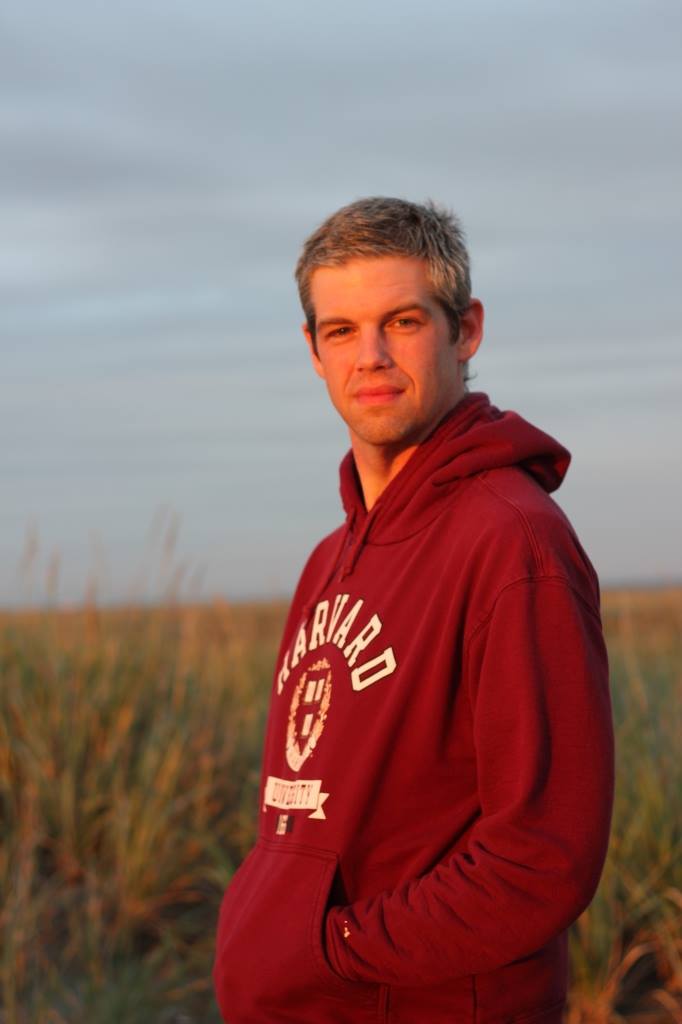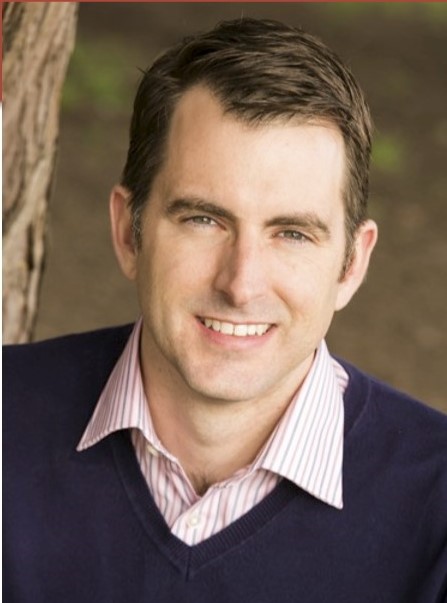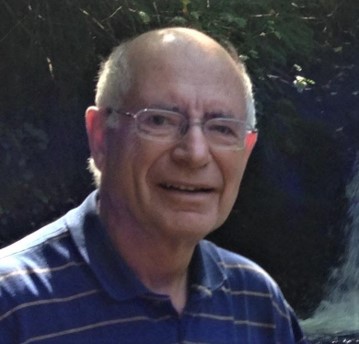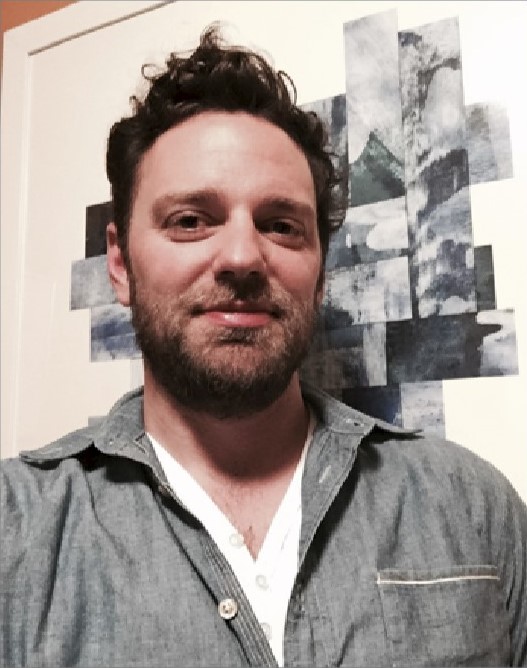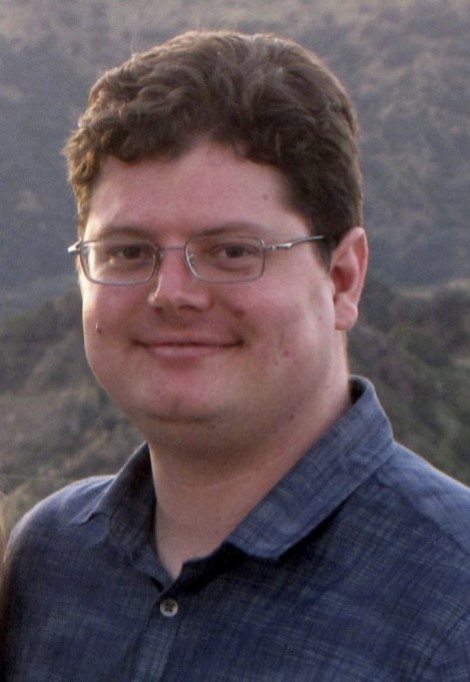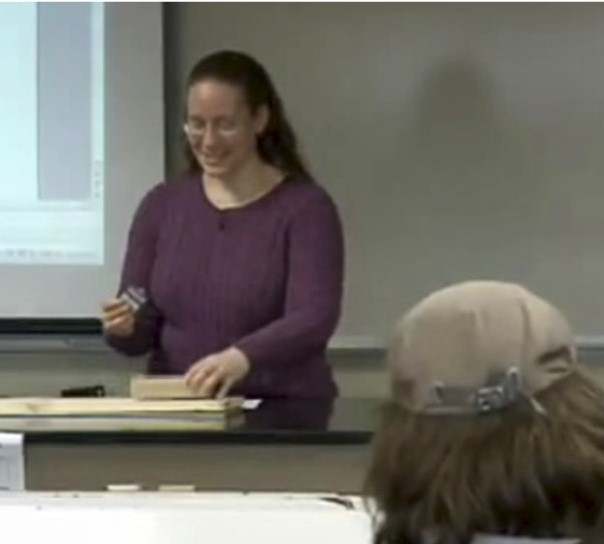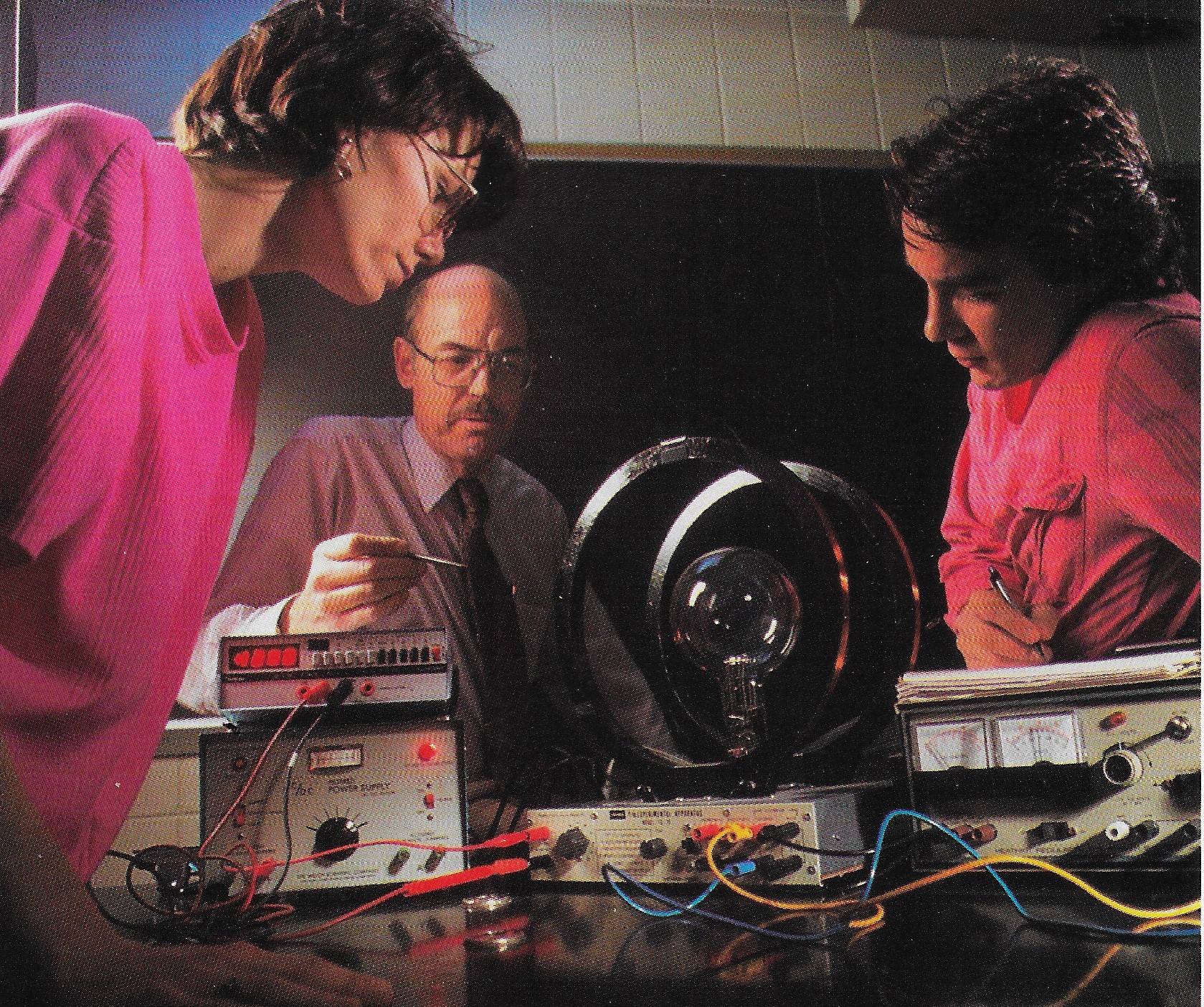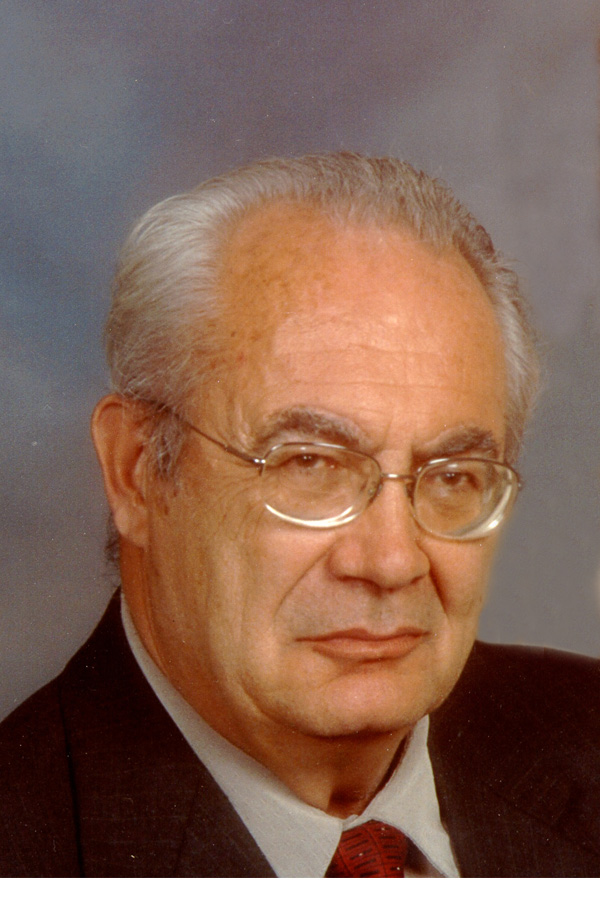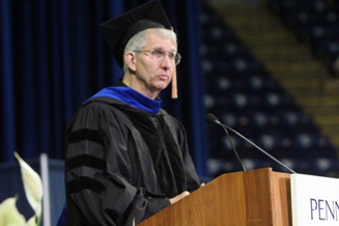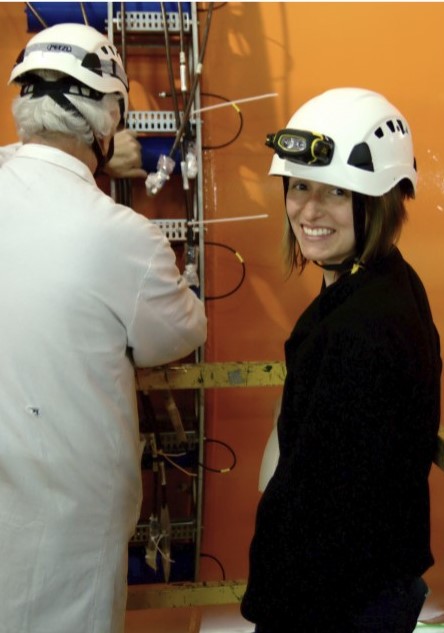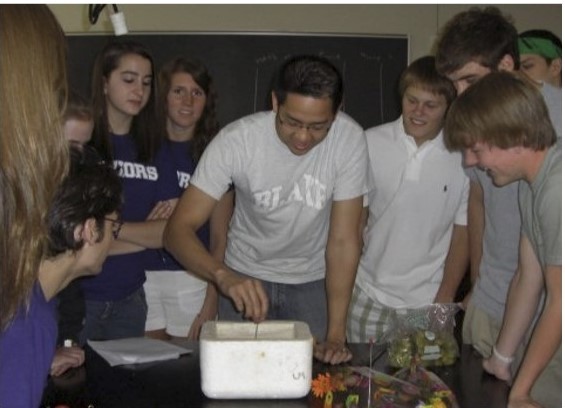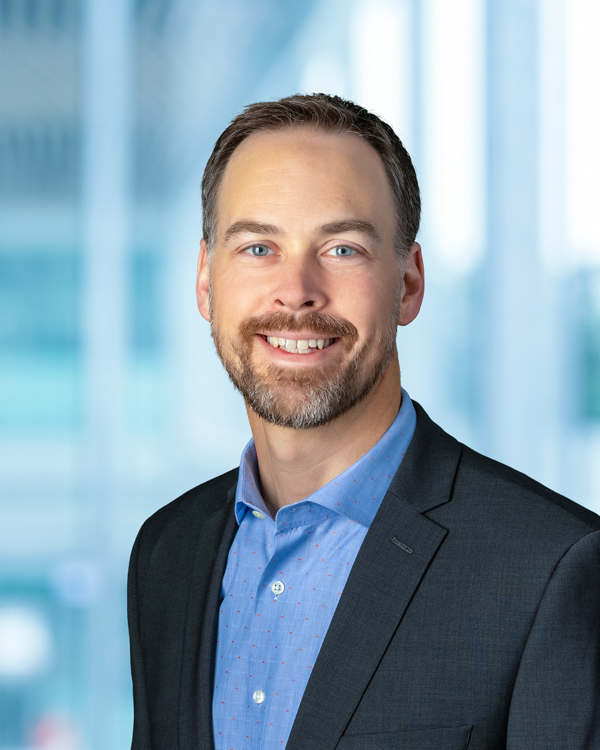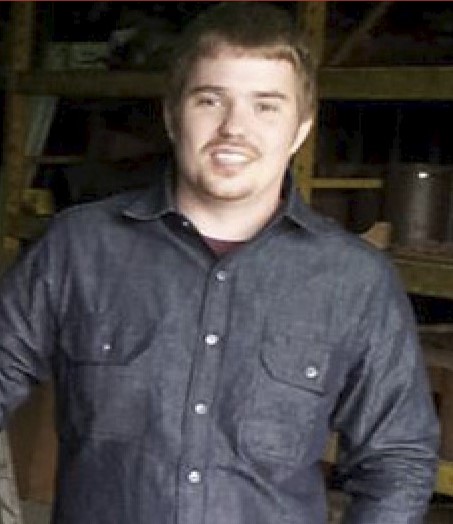Matthew Abroe (Physics PhD)
Portfolio Manager at Black River Asset Management
Matthew, who enjoyed mathematics and his high school physics class, decided to major in physics in college, which ultimately led to his PhD.
After graduate school, Matthew got a job as a quantitative analyst, where he built analytical tools for finding trading opportunities in global financial markets.
"A friend from grad school got a job at a hedge fund, which is how I learned about finance as a possible career path. While applying for post-docs, I also sent my resume to Black River, which led to a job offer."
After several years as an analyst, Matthew moved into a portfolio manager role who makes investment decisions. He now manages a team of 8 investment professionals who allocate capital to large domestic and international investors.
"The analytical lessons I learned doing physics research were crucial in developing the systematical tools I use for analyzing financial markets."
Scott Anderson (Physics BS)
Yoga and Meditation Instructor, Blue Mounds, WI
"As a child, I was curious about how the world worked. I took things apart, and sometimes got them back together again.
During his freshman year at the U, Scott was looking for a major that would satisfy his curiosity about the world. He enjoyed his first semester physics class and chose that as his major. As he studied physics, Scott also became interested in the human body and mind, making his first forays into meditation and yoga.
After graduations, Scott says "I did the most logical thing...I launched a career in teaching meditation and yoga." He has since opened several studios.
"Every step of the way I use my physics degree, as navigating self-employment, teaching, and exploring are basically variations on the same theme - problem solving."
Proving that it's never too late to go back to school, Scott began a PhD program when he was 50 years old. He studied the physiology of exercise and meditation. His physics degree prepared him well for graduate school.
"Other than regulating attention, problem-solving is one of the most important skills that a student can learn. Majoring in physics prepared me to solve problems quickly and efficiently."
Bryce Beverlin II (Physics PhD)
Founder of Quench Medical, St. Paul, MN
The son of a physician and a nurse, Bryce first caught the physics bug when he read a "Fun with Physics" book as a child. Multiple great physics teacher in high school continued to nurture his interest, and after graduating with a Bachelor's in music from Northwestern, he returned to Minnesota to pursue a BS in physics and astrophysics at the U.
"I loved the intertwining of the two physics majors, the awe of the vast, unsolved problems in the cosmos, and the insanity of happenings at the quantum mechanical scales."
As a graduate student, also at the U, Bryce took a course in Neural Engineering and got hooked on applying his physics problem solving skills to biological systems. He earned his PhD studying potential therapies for neurodegenerative diseases like epilepsy.
After a post-doc at the U's Medical Devices Center, Bryce started his own company, Quench Medical, which develops novel inhaled therapies to treat lung diseases like asthma, COPD, and lung cancer.
"The complexity of biology is staggering, and I still use my basic physics problem solving skills on a daily basis. The difficulty of completing a physics degree parallels real life: keep trying new ways of solving problems, and don't give up!"
Charlie Blackwell (Physics PhD)
Product Development Manager at Suominen Corporation
Charlie graduated from public high school in the suburbs of Atlanta and headed to Florida A&M University. He initially wanted to major in genetic engineering, but switched to physics.
"I chose physics because I wanted the flexibility to choose from a variety of careers," he says.
The summer before his senior year, Charlie interned at the University of Minnesota and got excited about experimental condensed matter physics. His advisor encouraged him to apply to the graduate program.
After earning a PhD, Charlie started as a Senior Product Development Engineer in the aerospace group at 3M. Now, with Suominen Corp, he is a Product Development Manager designing nonwoven materials, which are used for hygiene products as well as wet wipes and swabs. Charlie credits his physics degree with his success in multiple fields.
"The physics degree has allowed me to become the subject matter expert in many projects because of the ability to learn new subjects in depth. I can more easily adapt to new topics."
Kalven Bonin (Physics BS)
Medical Physicist Assistant at Radiation Physics Consultants, Duluth MN
Kalven chose to study physics in college because he really enjoyed his high school physics class. He knew he was interested in medical physics and radiation therapy, and a physics degree was the next logical step on his path to a career in that field.
"A degree in physics is more than just a piece of paper which states 'you are qualified for this job.' The problem-solving skills that I acquired throughout the process of obtaining my degree have helped me tremendously."
After graduating from the U, Kalven got a job as a medical physcisist assistant at Radiation Physics Consultants, traveling around the Midwest performing quality assurance and safety inspections on X-ray equipment. He credits his undergraduate physics education for providing the resources he needed to suceed.
"My research experience at the U as an undergraduate has helped my career because employers value candidates who are excited to develop new ideas."
In the future, Kalven plans to attend graduate school, earn a PhD, and complete a Medical Physics Certification program so he can move into the radiation therapy side of medical physics.
Greg Edlund (Physics BS)
Signal Integrity Engineer, IBM System Z
Greg's high school, Anoka Senior High, had a top-notch math and science curriculum. He got a jump start on subjects like calculus, physics, chemistry and computer programming before heading to the University of Minnesota for college to pursue a degree in physics.
"I was a first-generation college student without much direction from the previous generation [of my family]. Physics was the degree that seemed most likely to satisfy my persistent curiosity."
After graduating, Greg was hired as an electrical engineer at a start-up company, Supercomputer Systems Inc., that built the world's fastest supercomputer. His job was characterizing transistors, simulating and measuring random access memories, and designing analog integrated circuits: pioneering the discipline that would later be called Signal Integrity. He later moved to IBM to continue working as a Signal Integrity Engineer.
"When people ask me what I do for a living, I say: 'We keep the ones ones and the zeroes zeroes."
A signal integrity engineer uses software that simulates electromagnetic field propagation, and test equipment capable of measurements up to 50 GHz. Greg finds his job to be challenging, but very satisfying.
"It's rewarding to know that when someone uses an ATM, there is a good chance they are activating circuits I helped design."
Paul Edmon (Astrophysics PhD)
Research Computing Associate, Harvard Institute for Theory and Computation, Cambridge MA
Paul loved space and stars; he wanted to be an astronaut. He discovered a knack and love for physics in high school and knew that you needed a PhD to be an astronaut, so he went off to the University of Washington to study physics.
As an undergraduate Paul joined a research group detecting cosmic rays. In graduate school at the U he continued to study cosmic rays, now studying their origins and developing numerical simulations of their acceleration mechanisms. Part of this research was carried out using supercomputers that are part of the U's Minnesota Supercomputing Institute.
"I found that I really enjoyed using the largest machines in the world to simulate the largest explosions in the universe which accelerate the fastest particles we know of."
After working as a postdoc at the University of Manitoba, Paul is now running a supercomputing cluster at the Harvard/Smithsonian Center for Astrophysics (CfA) helping researchers with their computing jobs. His background in astrophysics helps him understand what researchers need.
"While day to day I don't do astronomy anymore, the knowledge I gained during my PhD has allowed me to think at multiple scales, and to understand what the astronomers at CfA are trying to accomplish."
Bryant Grigsby (Physics BS)
Vice President of Operations and New Product Introductions at Lumenetix
Bryant first considered a business major, but found it lacking in technical challenges. He switched to engineering, but having taken a physics intro class, he was drawn to physics because it provided a little bit of understanding of everything.
"I expected that getting a job as an engineer or scientist would be easy, but it wasn't. Perhaps having an advanced degree or minoring in Electrical or Mechanical Engineering would have made it easier."
Physics gave Bryant the broad background necessary to lead a multidisciplinary science and engineering team dealing with electronic design, optics, thermal and stress analysis, statistics and software.
"When you lead a large engineering team, you are asked to make decisions that will greatly affect what you are designing, often in an area that you've never worked in. A BS in physics gives you a broad enough understanding in everything such that if you have any decent problem solving skills, you can interpolate and come to a sound decision."
Steve Gustafson (Physics PhD)
Research Physicist, University of Dayton in Dayton, OH
Professor at Air Force Institute of Technology near Dayton OH, Retired
When Steve started at the U in 1963, new technologies like satellites and transistors made it an exciting time for physics.
"I was drawn to physics as a way to understand technological innovations that were new," he says.
As an undergraduate, Steve built equipment to detecto low-energy cosmic rays. As a graduate student at Duke University, he worked on microwave molecular spectroscopy. Steve credits his physics background for his ability to work on a variety of projects throughout his career
"I found that my education in physics enabled me to 'jump right in' on numerous opportunities and assignments."
After earning his PhD, Steve started a career as a research physicist at the University of Dayton, contracting with a variety of companies, focusing on optical phenomena for aerospace companies and government agencies. Later in life, he started teaching graduate courses in electro-optics and artificial intelligence, finished his career at the Air Force Institute of Technology. He found teaching to be very satisfying, and a great end to an enjoyable career.
"My career in physics was diverse and enjoyable. I wouldn't change any of it!"
Paul Kelley (Physics BS)
Program Manager - Hardware Technologies at Apple
Paul decided to major in physics because he wanted to understand how things worked, and expected that the concepts being taught would provide the explanations.
After graduation, he got a job at 3M measuring the optical properties of components for consumer electronics. Later he worked as an application engineer.
"It seems strange to say but getting my first job wasn't that hard. I was lucky to have some connections with friends at 3M, which has many other physics majors in various divisions. In 2009, I moved to CA to work for Apple, contributing to the iPod, iPhone and Apple Watch projects."
Paul excelled in some physics classes (Quantum Mechanics), others he found tough (Thermodynamics); he wasn't a 'straight A' student.
"Some students are discouraged by getting low grades in physics classes; some think they are not smart enough. I encourage those interested to stick with it, and enjoy the satisfaction of understanding the principles of how things work. Physics has been the foundation for my career in product development."
Mark Madland (Astrophysics BS)
Manufacturing Process Engineer at Medtronic
Mark always liked to figure out how things worked. Enjoying all sciences, an outstanding senior year high school physics experience led him to an astrophysics major in college.
"A technical foundation in physics and ability to comprehend complex problems allowed me to get a job that wasn't asking specifically for a physicist."
As an engineer making medical devices, Mark gets to determine and improve upon how they are made. He also uses data gathering and critical thinking to get at root causes of manufacturing issues and to improve the processes.
"The projects I work on are sometimes like my undergraduate physics laboratory classes. Hypothesize, experiment, report. Almost every day I use skills I learned in school such as how to take, analyze and report data."
Mary Lee McJimsey (Physics BS)
High School Physics Teacher at North Central High School in Spokane, WA
Attend Mary Lee McJimsey's high school physics class, and you may be surprised! Rather than delivering a long lecture at the board, she would be leading students in a hands-on exploration of how physics principles appear in everyday situations.
In addition to teaching, Mary Lee works with a physics education researchers who collects data on how students learn in her classes.
"It's important for teachers to be well-versed in physics education research," she says. "My understanding of this research informs the methods I use in my classroom."
Paul Nyhuis (Physics MS)
Professor at Concordia College in St. Paul and Inver Hills Community College in Inver Grove Heights
Care Pastor at Last City Church in St. Paul
Paul's interest in atmospheric physics and astrophysics led him to the U, where he graduated with a Master's degree in physics. Throughout his studies, he noticed that he had a knack for helping people.
"As a grad student, I worked as a teaching assistant and lab instructor and greatly enjoyed helping students."
Building upon his strengths, Paul continued on to an instruction career, teaching physics and math at Concordia College, and later physics and astronomy at Inver Hills Community College. He earned several Instructor of the year awards.
More recently, Paul began doing pastoral care for a large church, including visitation in the community, and counseling. He later started working with the Dakota County Jail, offering visitation services and leading a recovery group. Paul says that his background in physics has helped him make connections with the men he mentors.
"My background in physics enhances my credibility, and I often use interesting topics in physics and astronomy to connect with incarcerated men...The men tell me that my friendship and mentoring is having a very positive impact in their lives, helping them find meaning and enabling them to make better choices."
Karl Pfitzer (Physics PhD)
Senior Technical Fellow at McDonnell Douglas (now Boeing), Huntington Beach CA
Money had always been a problem in Karl's family, but he was awarded a scholarship that paid for his tuition and a place to live at the University of Minnesota.
Originally a chemistry major, Karl switched to physics after Organic Chemistry his sophomore year convinced him he did not want to be a chemist.
"I felt that physics was what I needed in order to understand how the world worked...that it would give me the training I needed to do almost any job."
Karl started working in a research lab building NASA funded satellites, the start of a long career working on technology in space. Karl stayed on at the U to earn his PhD developing an instrument that could fly in space to measure electrons in the Van Allen Belt. Teaching an advanced physics course after earning his PhD, Karl decided that academia wasn't for him and he took a research job at McDonnell Douglas in California.
Early in his career with McDonnell Douglas, Karl worked on solving problems in space. For example, he calculated for NASA the radiation dose astronauts would experience in space. As he advanced through his career, his physics education gave him the backgrond to support a wide range of engineering projects.
"One engineer commented 'for a physicist, you are a pretty good engineer.' The incredible diversity of the work I had to do for my PhD thesis gave me the tools to excel as an engineer."
Rick Robinett (Physics PhD)
Professor at Penn State University in State College, PA
Although physics and math were his favorite classes in high school, Rick started his undergraduate career at the U as an architecture major. That didn't last very long, and he soon switched back to math. The intro level physics courses he took opened his eyes to a new career possibility.
"I realized that the beautiful mathematics that I'd been seeing so abstractly could have real-life applications."
After graduating with degrees in physics and math, Rick followed the academic route. He earned a PhD in theoretical particle physics from the U, took two postdoctoral positions, and then landed a faculty job at Penn State University. He had two stints as associate dean.
Although he followed the standard academic path, Rick has also been an enthusiastic advocate for the diversity of career options a physics degree can provide. At Penn State, he teaches a "junior careers course," exploring post-undergraduate career options for students in the physics program.
"I encourage all physics majors, wherever they are, to explore career opportunities through networking. Use the excellent information available from the American Physical Society and the American Institute of Physics and take advantage of Linkedin.com to connect with peers and mentors."
Kelly Stifter (Physics BS)
Physics Graduate Student at Stanford University
Kelly came to the University of Minnesota intending to major in astrophysics. She was always captivated by stars and the universe. But partway through her studies, she switched to experimental physics, and, among other things, helped build hardware for detectors at the European CERN accelerator.
"I found that the part I enjoyed most was tinkering with all of the hardware. I like to build things, especially when these things are used to discover how the universe works at the most fundamental level."
Serving as a teaching assistant, Kelly also found that she enjoys teaching and sharing physics with others, and decided to continue as a graduate student, which may lead to an academic career.
"Physics is my passion. It is incredible that I will be paid to live this dream every day. I look forward to working with different groups at Stanford while I find my future plan."
Jeff Trinh-Sy
High School Teacher at the Blake School in Minneapolis
After several on-the-spot job offers, before he even earned his degree, it was clear to Jeff that the mindset and perspective that physics offers is incredibly valued by various fields of the workforce. After two summers working with students, though, he found that teaching is a path that brought him fulfillment and meaning.
"Every day I get to play with, study, and teach physics. More importantly, though, I get to give people a glimpse of how I see the world and beyond. That opportunity to see those sparks of light is absolutely invaluable."
As an educator, Jeff has the freedom to develop curriculum, and even entire classes, that resonate with him. He sees powerful connections between physics and other fields of human endeavor.
"It's all about taking the never ending life lessons that I pick up everyday and teaching them through the language of physics, math, and science in general. It doesn't take long for students to see how limitless they are."
Paul Way (Physics MS)
General Manager, Engine Liquid Filtration at Donaldson, Minneapolis MN
Paul's first encounter with physics was an AP class during his senior year of high school. During his college orientation at St. Olaf, he attended the physics department's introduction and made connections with faculty. After receiving an offer to become a physics TA in his first semester, he quickly decided to become a physics major, later adding a second major in philosophy.
Paul chose the U's graduate school over industry at first, feeling that it was the better choice for a more science focused career. He decided to change course after achieving his master's degree, feeling that a PhD was great for academia, but not needed for his intended corporate career.
"[My advisor] had a great group of students, and I was able to learn some hard skills around electronics, instrument design, analysis, and computer programing. I think it's a common physics skills set that I've found plays well in industry."
Paul worked as a physicist for the Environmental Protection Agengy, and more recently at Donaldson, Inc., a global filtration solutions company based in Minneapolis.
"My background in physics has positioned me with a strong science and engineering skill set as well as a problem-solving attitude that works well in any business function."
Ian Young (Physics BS)
Engineering Physicist at Fermi National Accelerator Laboratory
Ian became interested in physics while attending Minneapolis Community and Technical college. He transferred to the University of Minnesota, and worked with particle physicists on building a new accelerator, and then as an intern at a small industrial manufacturing company. Having completed his degree, he joined Fermi Lab.
"I work with physicists, engineers and technicians to design, create and implement automation for various systems, such as cryogenic controls and oxygen safety. I also work on many other aspects of the diverse array of experiments conducted here."
Ian wasn't sure whether he wanted to stop at the bachelor's degree, or continue with his studies. He expected his physics major studies to be challenging as well as rewarding, but he was nervous about his job prospects if he didn't continue beyond the BS.
